

 Travel Information Venezuela A-Z | Overview | Tour Recommendations
Travel Information Venezuela A-Z | Overview | Tour Recommendations
Holidays |
Arrival
Please check the current entry and visa requirements with your embassy.
To enter the country you must exhibit a valid passport expiring 6 months after the planned date of exit. Compliance with this provision has lately been controlled more strictly; non-compliance may cause the denial of entry. Also children’s passports are accepted as long as they contain a photograph.
When entering the country by air, all tourists are handed out tourist cards during the flight, usually entitling to a stay of up 60 days; different Venezuelan customs authorities may sometimes grant longer stays. Passport holders must return the green duplicate upon exit.
Visas for entering Venezuela are now only required for arrivals by sailing boat, entrance category “Embarcaciones Deportivas”.
When leaving the country by air, passengers must pay an exit tax currently totaling Bs. F 162,oo in bolivares cash (approximately 38 U.S. Dollars to the actual changing rate), unless it has already been included in the airfare.
Banking
Money exchange is only possible in exchange offices at Caracas International Airport (casas de cambio) due to the control of exchange rule by the government. We advise that you wait with your transaction until you meet your tour guide at Caracas International Airport. He/she will advice you about this matter.
It is advisable to bring USD cash in small notes such as 1,oo / 5,oo / 10,oo & 20,oo U.S dollar.
The actual changing rate (19.01.2011) is Bs. F 4,30 per 1 U.S. dollar
Banking hours: Mon-Fri 08:30 – 03:30 p.m.
Climate
Venezuela has a tropical, i. e. year round hot and, during the rain period, humid climate. The rainy season typically lasts from April through September. Rain showers occur usually around noon or in the afternoon and rarely last for more than an hour. The difference in temperature is only 4 degrees Celsius in the year! However, considerably stronger is the difference in temperature in the course of a day. And the climate varies from region to region. While the plains exhibit a tropical climate year round, its weather in the highlands is rather moderate, whereas in high regions above 2,000 m above sea level, it may become quite cold.
Mail: Mail: Airmail to Europe and North America may take somewhat between 3 days and 5 weeks; domestic mail may take sometimes even longer. Maritime and surface to Europe and North America takes at least one month. Apart from stamps, post offices (ipostel) also provide special airmail paper already including postage. Mailboxes for mail to foreign countries are marked extranjero resp. internacional. Post office hours are Mon - Fri from 08:00 a.m. to 12:00am & 02:00 to 05:00 p.m.
Telephone: Direct Distance Dialing. International Area Code: +58. Venezuela has an extended landline and mobile telephone network. Domestic companies CANTV and TELCEL in every city maintain several communications centers (Centros de comunicaciones), from where it is quite easy to phone home. These centers usually also maintain cheap internet services. It is rather not recommended to make phone calls from hotels, since these charge elevated telephone rates. You may also ask for R calls, where the receiving party pays for the call. It is possible also without a phone card, just lift the handset and dial 0800-1001-49-0 (as an example for Germany). The area code for Venezuela is +58.
Fax: Available in all major hotels
Internet: There are internet cafés in all major cities.
Telephone: Direct Distance Dialing. International Area Code: +58. Venezuela has an extensive landline and mobile telephone network. Domestic companies CANTV and TELCEL in every city maintain several communications centers (Centros de comunicaciones), from where it is quite easy to phone home. These centers usually also maintain cheap internet services. It is rather not recommended to make phone calls from hotels, since these charge elevated telephone rates. You may also ask for R calls, where the receiving party pays for the call. It is possible also without a phone card, just lift the handset and dial 0800-1001-49-0 (as an example for Germany). The area code for Venezuela is +58.
Fax: Available in all major hotels
Internet: There are internet cafés in all major cities.
Currency
Bolívar fuerte (Bs F.) Bank notes circulate in denominations of 2,oo / 5,oo / 10,oo / 20,oo/ 50,oo & 100,oo Bs. F; Coins of Bs F. 1,oo / 0,50 / 0,25 / 0,125 / 0,10 / 0,05 & 0,01
ec-/Maestro cards/Sparcard: Cards exhibiting the Cirrus or Maestro logo are accepted worldwide.
Credit cards: the use of credit cards such as American Express, Eurocard, MasterCard, Visa and partly Diners Club are accepted is very restricted due to the exchange control.
Traveler checks: Should be issued in U.S. Dollars. And only can be changed at the exchange houses at the Caracas International Airport to a lower changing rate. Frequently travelers are asked to exhibit their proof of purchase when cashing in traveler checks.
Lines in front of ATMs may sometimes be very long, especially on the first day of the month when many banks are closed, and the days before long weekends – then many ATMs are completely empty already in the morning.
Customs
The following articles may be brought into Venezuela free of duty: 200 cigarettes and 25 cigars; 2 l of alcoholic beverages; 4 perfume flacons; new goods up to a value of 1,000 US$.
Electric power
110 V, 60 Hz, American flat plugs are required.
Geography
Venezuela is situated in the northern part of South America and has a total surface of 916,445 km2. In the north, it borders the Caribbean Sea, in the east Guyana and the Atlantic Ocean, in the south Brazil and in the west and southwest Colombia. The country is divided in four regions: the Western Highlands, the Northwestern Maracaibo Basin, the extensive Orinoco Lowlands and the Llanos, and the Mountainous Region of Guyana, which makes up for almost 50% of the country’s surface. Venezuela’s capital city is Caracas, with 1,808,940 inhabitants (2006) and approx. 3,4m inhabitants considering the periphery.
Government
Presidential democracy; President is elected for a term of six years, one possibility of reelection.
01.01. New Year's Eve
Feb. or March Carnival
Easter: Holy Thursday & Good Friday
19.04. Day of the Declaration of Independence
01.05. Labor Day
24.06. Battle of Carabobo
05.07. Día de la Independencia (Independence Day)
24.07. Birthday of Simón Bolívar
12.10. Columbus Day
24./ 25.12. Christmas
31.12. New Year's Eve
These are the public holidays. In addition there are various regional holidays.
Language
Venezuela’s official language is Spanish. Indian languages are regionally used. English, French, German and Portuguese are also partially spoken.
Photographing and Filming
South America is ideal for taking pictures. Both landscapes and persons provide marvelous motifs. However, as everywhere in the world, it is a sign of respect to ask people for their permission before taking photos of them (unless you can shoot discretely). Nonetheless, especially with large crowds and poor neighborhoods caution may be indicated. Refineries, government buildings, policemen, security personnel and soldiers must not be photographed. It is advisable to bring along films and batteries from home, since they are relatively expensive in Venezuela. In Caracas, caution is advised not to get pick pocketed while shooting pictures. Generally speaking, one should not carry cameras very evidently.
Population
Venezuela has approximately 32 million inhabitants. Of these, 75 - 80 % are mestizos, 15 - 20 % of European, 3 - 5 % of African and 2 % of indigenous descent.
Shopping
Among the shopping suggestions for Venezuela are gems, jewelry, Cacique coins, gold, pearls, shoes, hand bags, Indian bow and arrows, mats, pipes, baskets, alpargatas (traditional local footwear of campesinos) and chinchorros (hammocks).
Shopping hours: Mon-Sat 09:00 a.m. - 01:00 p.m. and 03:00 – 07:00 p.m.
Time zones
There is no daylight saving time in Venezuela. The time difference with GMT is -4:30 hours.
Tips
The amounts are at the guest’s discretion. Most bars and restaurants include 10% official tips, another 10% are customary. Hotel personnel also expect tips; taxi drivers get tips if they help with the luggage. In Caracas more tips are given than in other parts of the country. In the case of excursions or activities tips can/should be given of max. 5 US$ per participant.
Vaccines
No mandatory vaccines are required to enter Venezuela. Due to the occurrence of yellow fever in rural areas, however, vaccination against Yellow Fever prior to travel is urgently advised, especially when planning a visit to the inland.
Although in contrast with official provisions, occasionally a cholera vaccination certificate may be demanded, especially where there are cases of Cholera in the country of origin or if entering the country at checkpoints different from the capital city’s international airport. There are occasional cholera cases; however, tourists are usually not affected.
For a short stay in the country vaccination against Hepatitis A, Tetanus and Diphtheria are recommended. For longer stays, additionally vaccination against Hepatitis B, Typhoid, and Rabies may be recommendable.
There is an all-year risk of Malaria, especially in the rainforest areas. For this reason, protection against mosquito bites by means of mosquito nets and / or anti-mosquito sprays or liquids (e. g. Autan, NoBite) is strongly advised. For medicated malaria prophylaxis, several prescription medicines are commercially available (e. g. Malarone, Doxycycline, Lariam). Their personal choice and dose, as well as possible side effects or intolerances as a result of the intake of other drugs should in any case be discussed prior to traveling with a specialist for tropical or travel medicine. The insect-borne so-called dengue fever occurs especially during the rain period.
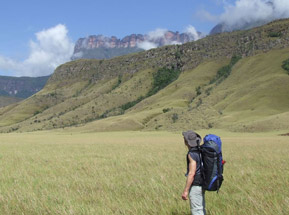
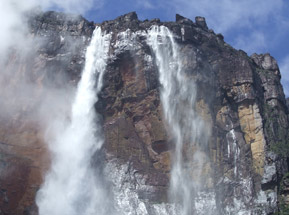
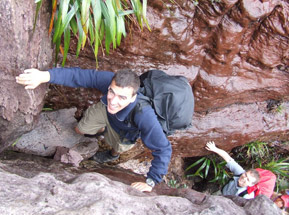
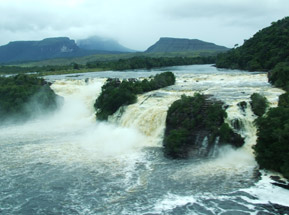
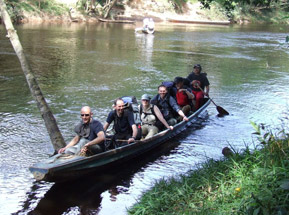
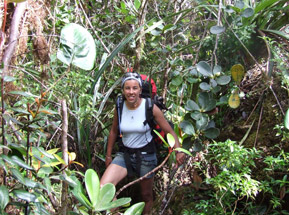
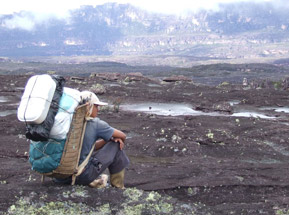
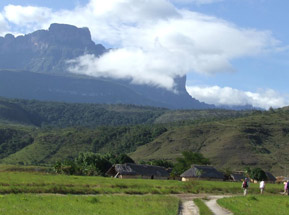
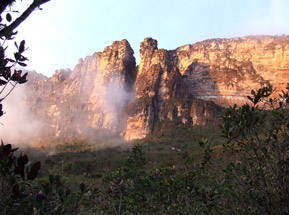
Home | History | Philosophy | Otto`s Team | References | Contact us | GTC
Ecuador - Peru - Venezuela - 2014

![]()

 Overview
Overview Travel Information A-Z
Travel Information A-Z Tour Recommendations
Tour Recommendations Login Tour Operator
Login Tour Operator